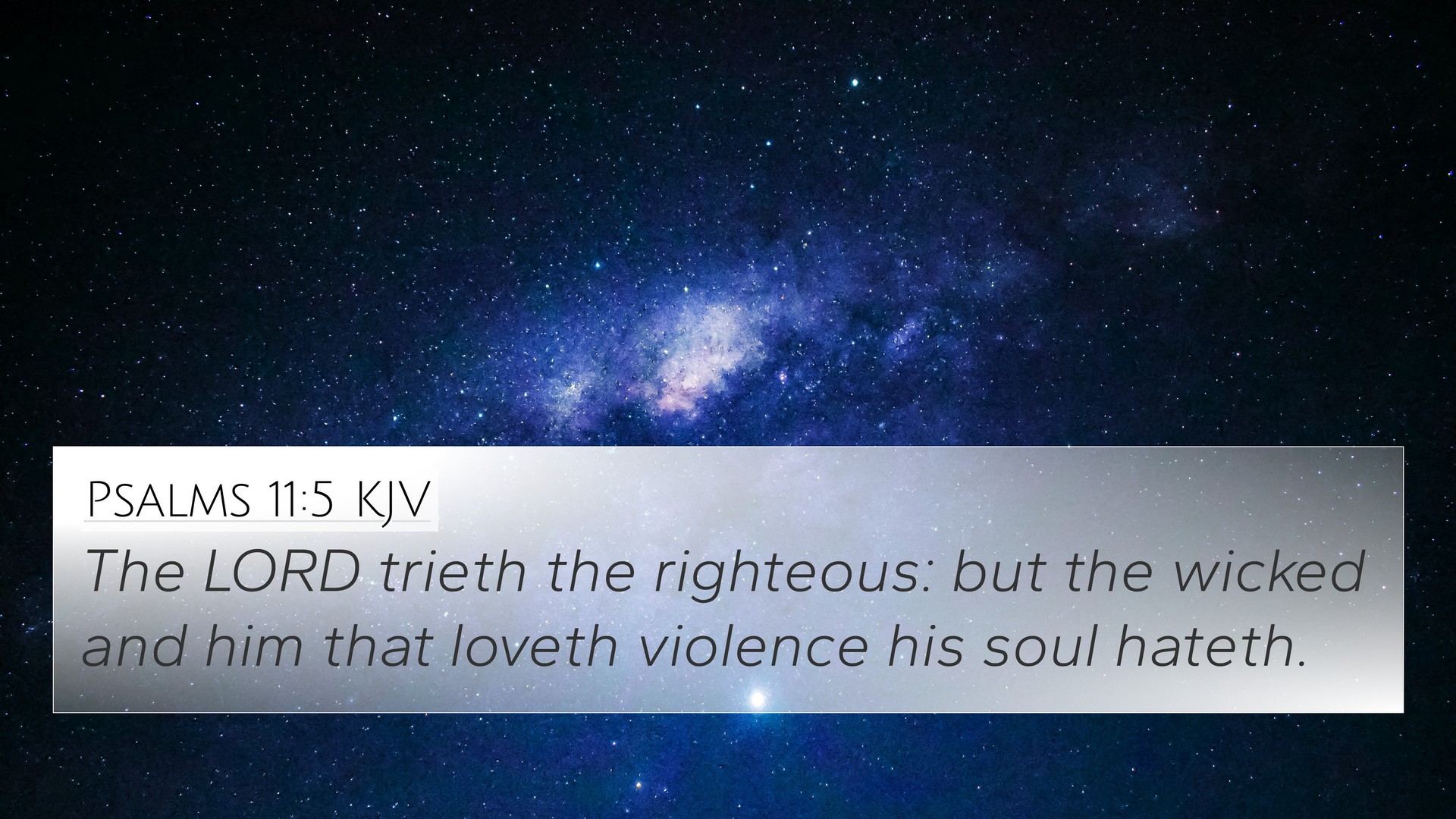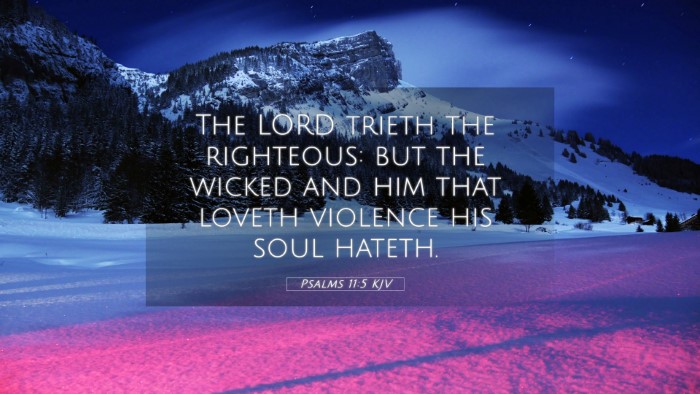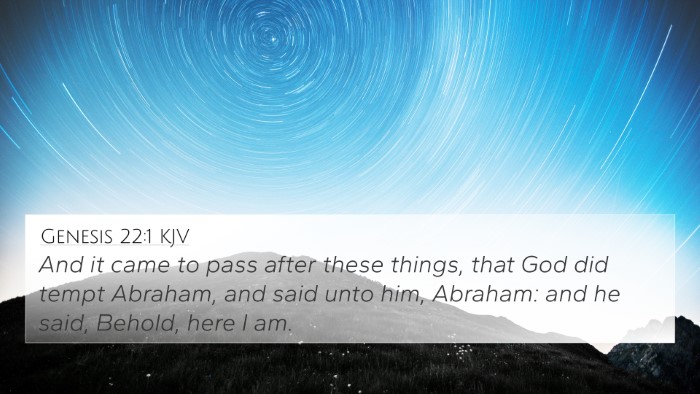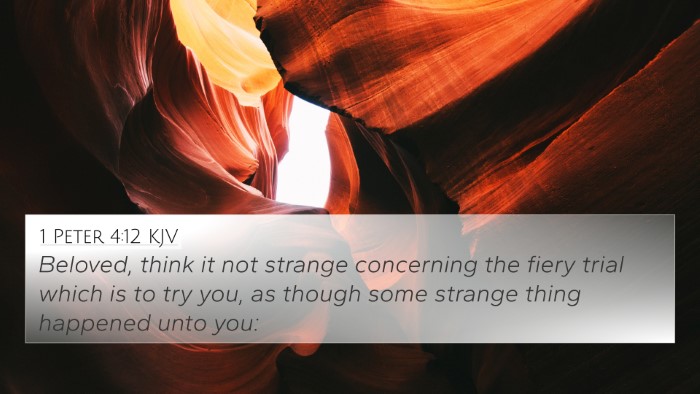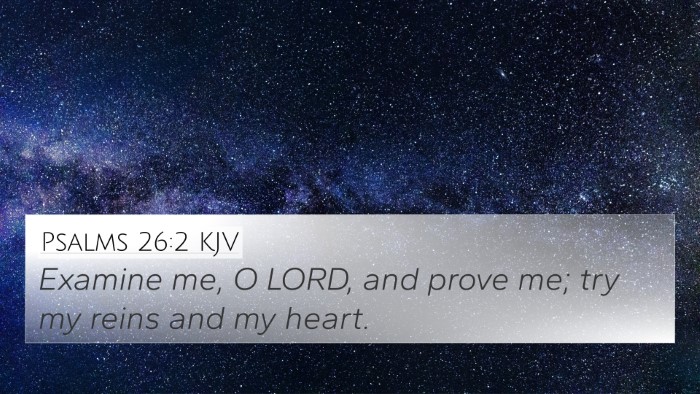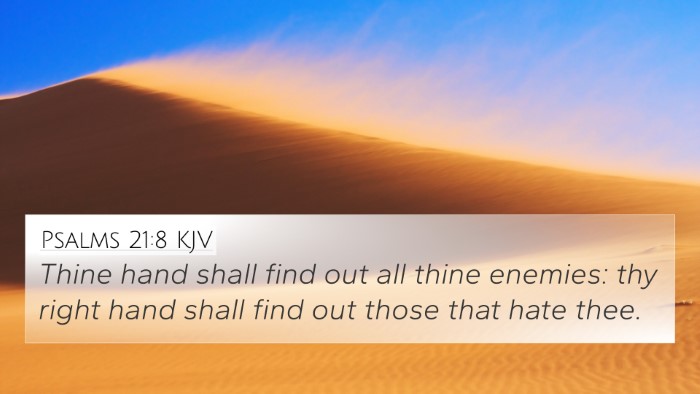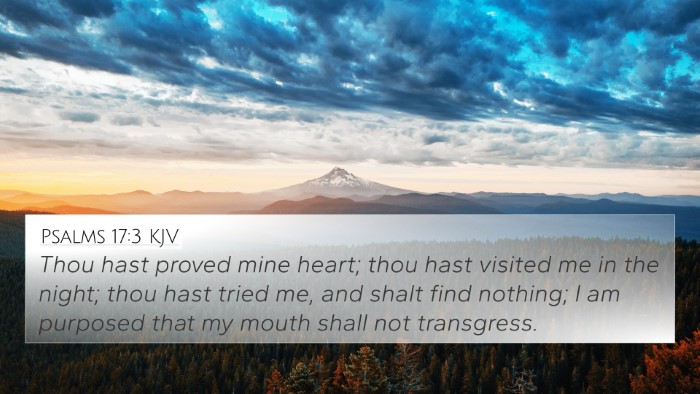Psalms 11:5 - Understanding the Divine Judgment
Verse: "The Lord tests the righteous, but the wicked and the one who loves violence His soul hates." (Psalms 11:5)
The focus of Psalms 11:5 is the distinction made between the righteous and the wicked in the eyes of God. This verse teaches that God examines (or tests) the righteousness of individuals, highlighting His divine discernment over human actions. Here, the psalmist provides a sobering reminder of God’s impartiality in His judgments.
Commentary Insights
-
Matthew Henry:
Henry explains that while the Lord may appear to be silent in the face of evil, He is always evaluating the disposition of humanity. The righteous are tested to refine their faith, while the wicked face the wrath of God due to their iniquities. This verse emphasizes the justice of God, assuring the faithful that their plight is seen and acknowledged.
-
Albert Barnes:
Barnes elaborates on the nature of the test that God imposes, indicating that it serves as a means of purification and growth for the righteous. In contrast, the wicked are on a path that leads to destruction, and their actions are not hidden from God's sight. Barnes reinforces the concept that God's soul detests violence, making it clear that God passionately opposes sin.
-
Adam Clarke:
Clarke offers a reflection on God's love for righteousness, highlighting that the divine nature inherently favors goodness and justice. He reinforces that the testing of the righteous is a necessary component of their spiritual journey, serving to strengthen their character and faith. Conversely, the disdain for the wicked underlines God’s commitment to justice.
Bible Verse Cross-References
This verse connects with several other scriptures that address similar themes of God’s judgment and the fate of the righteous in contrast to the wicked:
- Proverbs 15:9: "The way of the wicked is an abomination to the Lord, but He loves him who follows righteousness."
- Romans 1:18: "For the wrath of God is revealed from heaven against all ungodliness and unrighteousness of men."
- Psalm 73:12-14: "Behold, these are the ungodly, who are always at ease; they increase in riches. Surely I have cleansed my heart in vain, and washed my hands in innocence."
- Matthew 5:10: "Blessed are those who are persecuted for righteousness' sake, for theirs is the kingdom of heaven."
- 1 Peter 3:12: "For the eyes of the Lord are on the righteous, and His ears are open to their prayers; but the face of the Lord is against those who do evil."
- Galatians 6:7: "Do not be deceived: God is not mocked, for whatever a man sows, that he will also reap."
- Psalm 37:9: "For evildoers shall be cut off; but those who wait on the Lord, they shall inherit the earth."
Thematic Bible Verse Connections
The theme of divine judgment is prevalent throughout Scripture, illustrating the dichotomy between the righteous and the wicked. Understanding these connections provides deeper insights:
- The righteousness of the Lord (Psalm 45:7)
- God as a refuge for the righteous (Psalm 46:1)
- The wrath of God against sin (Revelation 20:15)
- Hope and vindication for the believers (Isaiah 54:17)
As we explore these cross-references, a comprehensive Bible cross-reference system can be beneficial in understanding these connections more thoroughly. For those seeking tools for Bible cross-referencing, applying structured methods can greatly enhance the study of biblical texts.
Cross-Referencing Bible Study Methods
Utilizing a Bible concordance can assist in identifying related verses and thematic connections, while a systematic approach to cross-referencing can facilitate a deeper understanding of Scripture. Whether through a comparative Bible verse analysis or linking Bible scriptures, methods abound that foster theological insight.
Conclusion
Psalms 11:5 serves as a crucial reminder of God's impartial nature and the assurance that He weighs the actions of both the righteous and the wicked. With numerous connections to other scriptures, believers are encouraged to engage in the practice of scriptural cross-referencing, enriching their understanding of divine justice and righteousness.
